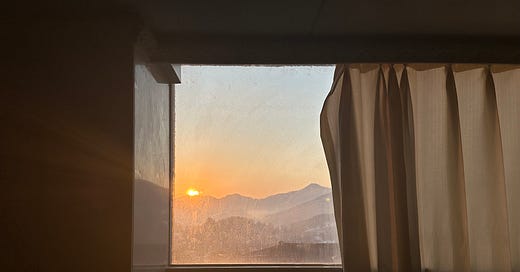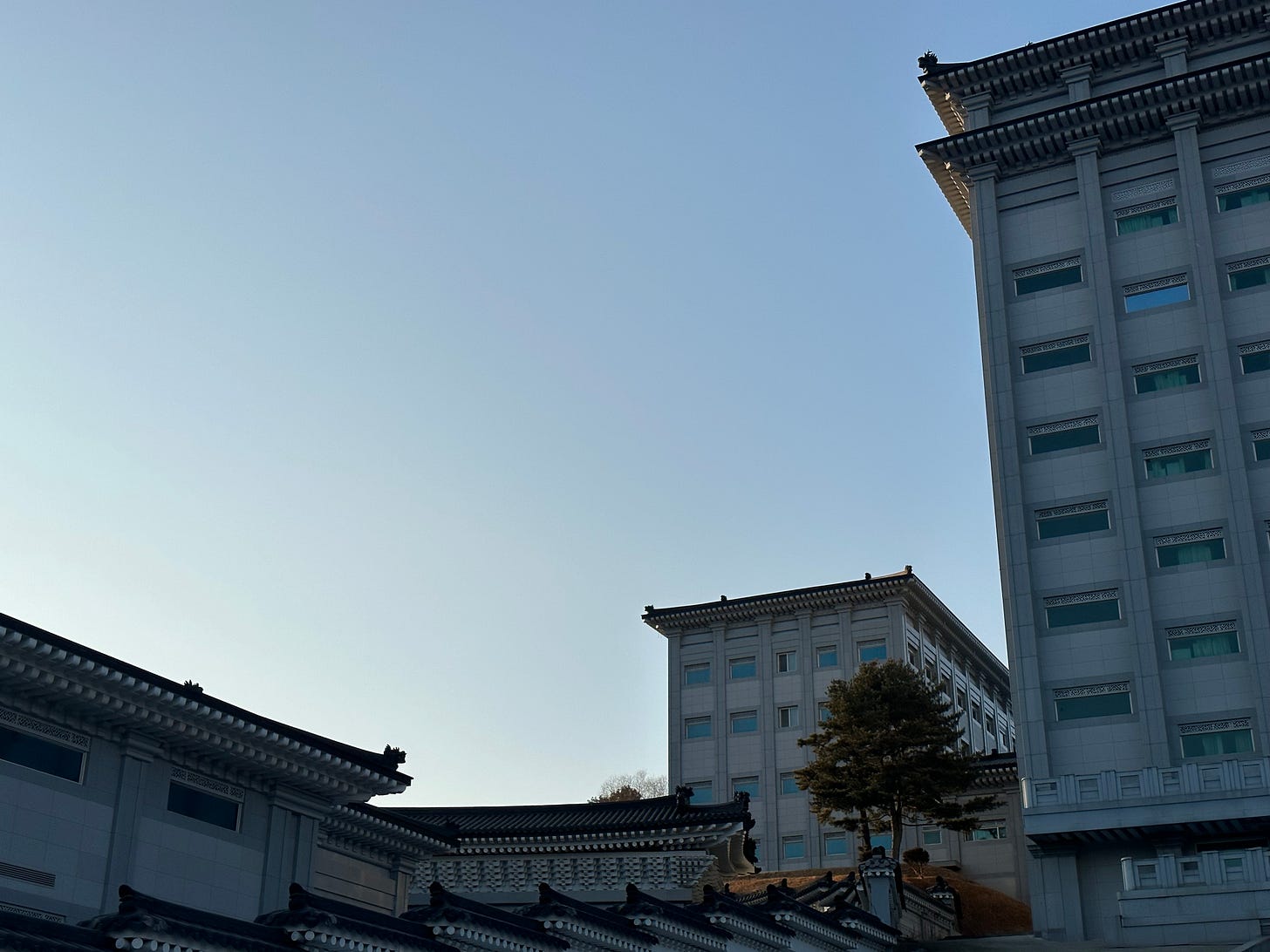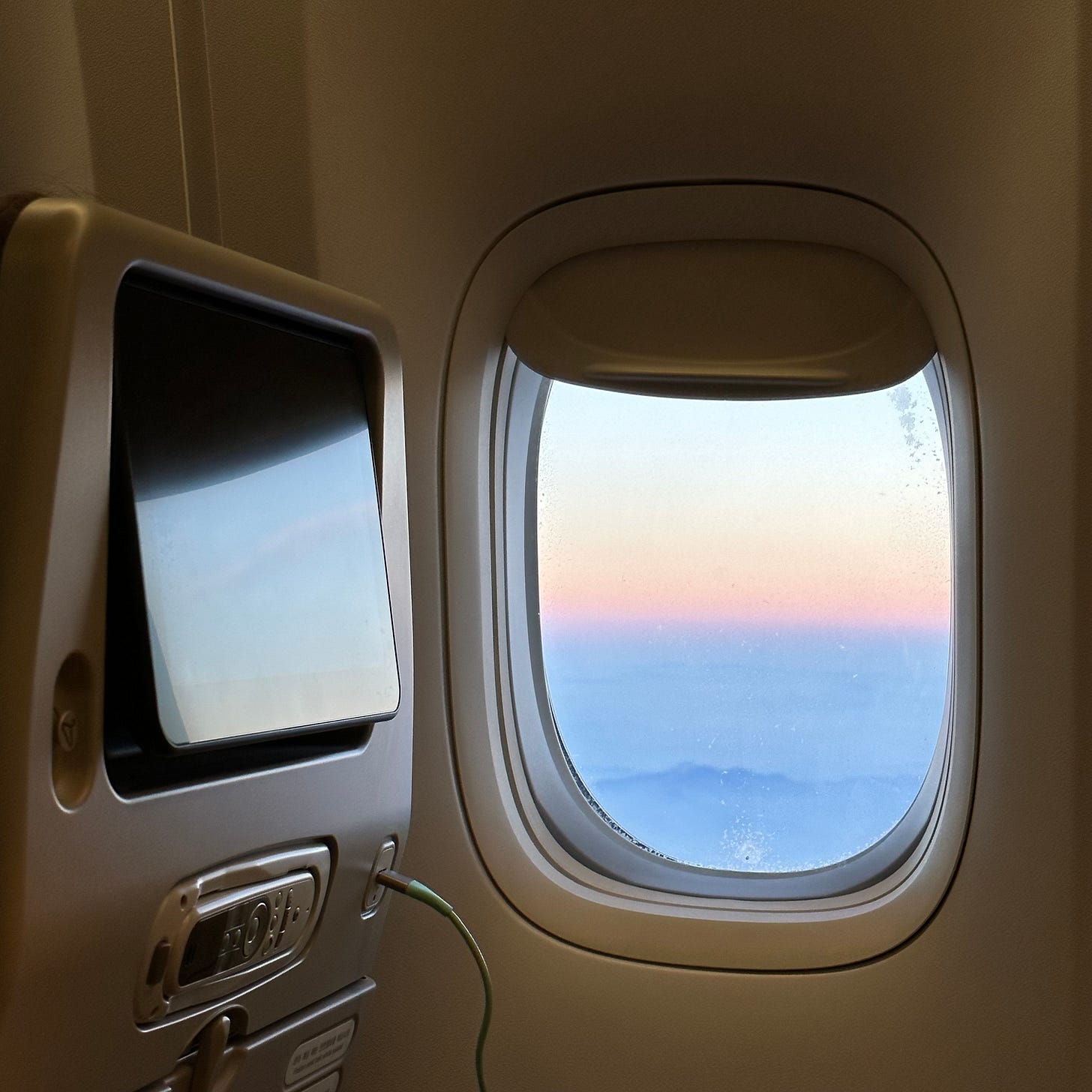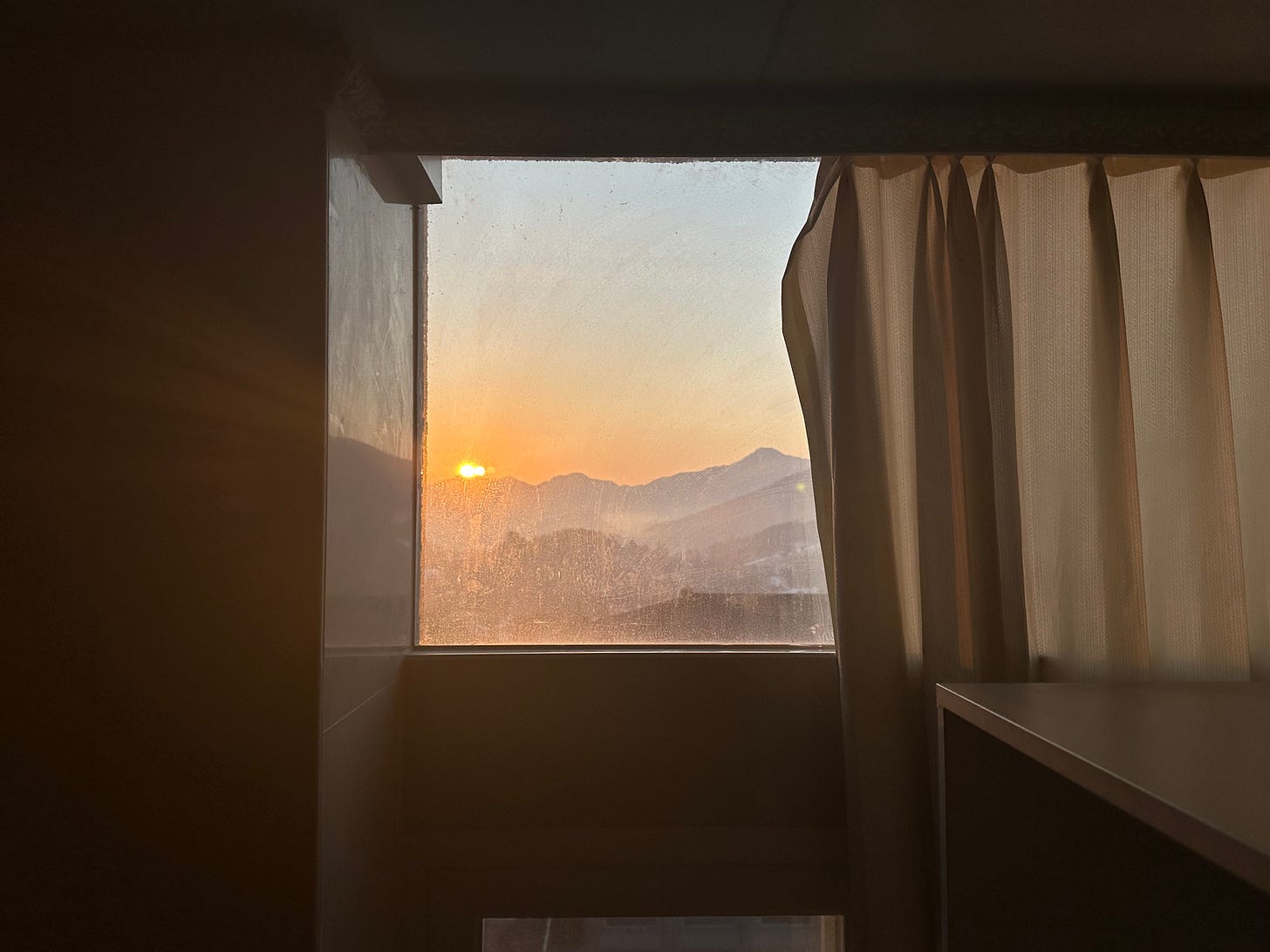“What makes someone Asian?” Yang asks in After Yang, an A24 film about a family who purchases an Asian android (Yang) to help their adopted Chinese daughter Mika connect with her cultural heritage. Though Yang never once struggles with the fact that he is not, and can never become human, he repeatedly questions whether he is actually Chinese.
Yang’s adopted family is both multicultural and multiracial, and lives in a world seemingly pan-Asian in appearance (the cast also reflects this as well—Justin Hong-Kee Min, the actor who plays Yang, is Korean American). They live in an impeccably styled home that bears echos of modern Japanese architecture (much like the Park family’s house in Parasite), eat exclusively with chopsticks, and frequent dimly-lit ramen joints. We also discover early on that Mika’s (white-passing) father, Jake, owns a high-end Chinese tea shop. At one point during the film, Jake prepares a pot of tea, and Yang wistfully remarks: “I wish I felt something deeper about tea. I wish I had a real memory of tea in China… of a time, of a place.” Although he can share a litany of facts about the history of tea, he has never been to China, and his comments seem to imply that perhaps, in terms of lived cultural experience, Jake is more “Chinese” than Yang. Though others put pressure on him to perform his Asianness—as Mika’s “second sibling,” it is the reason for his existence—Yang does not feel Chinese. His inner and outer selves are at odds with one another.
***
At the time that I am writing this, I will be leaving for South Korea in exactly a week. I am the first person in my family (excluding grandparents) to visit Korea since my mother first emigrated when she was nine—and though I want to feel euphoric, I feel strangely little inside.
The Korea I am returning to is far from the Korea that my grandparents and my mother left behind in the 1970s, and in the nearly fifty years that have elapsed, we have transformed, too. I know that I bear little resemblance in heart and mind to the average Korean, and am not naive enough to expect that I will finally discover a feeling of acceptance in contemporary Korea—but I cannot say with complete certainty that I am not chasing after this sense of belonging.
What is it that makes me Korean? In America, I have always felt that my race mattered more than my ethnicity in how people perceived and addressed me. Yet I will still vehemently defend contemporary Korean culture when put up to it, and feel more than just an inkling of pride at the success of contemporary Korean media. I once dated with a musician (white, male, cis-gender) who asserted that K-pop was nothing more than a cheap imitation of Western music, warranting no merit, talent, or genius of its own. Aggravated by his comment, I double-downed on the industry, despite harboring some of the same prejudices. I think perhaps I felt that in his critique of K-pop, he was also indirectly critiquing me.
In America, I am overdetermined by the color of my skin, the shape of my eyes, and the texture of my hair. When I am here, I yearn to be there, or anywhere that will see me more than cute (infantile) and porcelain (fragile, inanimate, inhuman).
I still nostalgically hold onto the memory of the first time I visited Asia and felt at peace within my body. In China, and later Japan, I found a place in which I could pass as human, just by the skin of my bones. While living and studying abroad in Japan, I discovered that if I remained silent, no one would realize that I was an imposter. After I opened my mouth and shattered that illusion, I could say that I was American, and if pressed further, I could say that I was Korean. I had no obligation to the nation, and so though I bumbled my way through the language, it was okay, because it had not been written into my blood. No one could make me feel ashamed, which was the way I often felt around other Koreans.
Japan allowed me to embrace being Asian, and I developed an appreciation for the culture (ceramics architecture tea film literature music) that I had never felt towards my own heritage. I suppose that a part of the reason why I have decided to spend a year abroad is because I want to discover a reason to feel proud of being Korean and have more confidence in asserting my identity to others. I wonder if this desire is something that is American, Korean, or both?
A friend (also Korean American) once told me that he believed it was the duty of children of immigrants to remain connected to their parents’ (or grandparents’) culture, if they were to avoid falling into the trap of whiteness. I’m not sure if I fully agree with him—I think for many families, including my own, America offered an opportunity to sever ties with traditions steeped in patriarchy and ageism. I also think of this marvelous short story by Alice Walker, which paints a keen portrait of the way one can fetishize their own cultural heritage under the guise of wokeness. But I am also not so sure if I can so easily abandon a history, rooted in-place, that facilitated my family’s relocation. I am afraid that in neglecting the specificity of my skin, I risk reducing my identity to the very flat-faced caricature of Asianness that I so despise.
In The Loneliest Americans, Jay Capsian Kang admonishes the superficiality of present-day Asian American identity, oriented around materialistic pleasures and petty grievances. Though Kang acknowledges the important grassroots activism that championed the term “Asian American,” he argues that the 1965 Immigration Act drastically transformed the socioeconomic demographics of Asians in America, making is such that any alliance built around the rallying cry “that we had all come from the continent of Asia” would be inherently fraught and fractured. The result, he suggests, is a tenuously structured cultural identity that lacks substance.
To a certain degree, I find myself in agreement with Kang; I have often sought intellectual fulfillment outside of the Asian American canon (aside from literature) through East Asian culture and media (often film). In my conversations with other young Asian Americans, I am sometimes disappointed and surprised by the lack of a racial consciousness, or if present, a racial awareness that seems myopic.
Kang never defines what an identity of substance might look like for Asian Americans, and proposes the formation of a more precise set of qualifiers, perhaps not solely oriented around race. Yet to let go of race entirely feels too much like signaling defeat. I want to have it all—to maintain a sense of self that pays homage to my family’s struggles in America, yet which also reaches for something more sacred than my singular experience, without falling prey to the cultural short-circuiting of identity. Perhaps I am going to Korea to pursue a definition of Asian Americanism that, through the specificity of my Korean heritage, is something worth fighting for.
***
Yang’s dilemma of identity in After Yang is a dissonance which ultimately leads to his premature “death.” There is a reading of the film which suggests that Yang’s crisis is in part induced by the flattening of Asian culture—through commodities like chopsticks, ramen, and tea—into a glossy, contemporary sheen. Amidst the widespread circulation and globalization of (East) Asian media (K-pop, anime, manga), ideologies (Zen Buddhism, wabi-sabi), and commodities (food and material cultures), what does it mean and what does it look like to be Asian?
This newsletter is for me just as much as it is for you. It is a space to collect my musings and memories over the upcoming months, and an attempt to remain connected with the beloved I have left behind. The title, Seoul Calling, is borrowed from a chapter of John Lie’s book on K-pop (the book, which in many ways, started it all).
Why does it feel so significant to return to a place? Perhaps there is something symbolic in the gesture of return… and the stability of a land unchanging, in spite of the marks we leave upon its surface and the transformations we undergo as people. Other than my family, the things that connect me to Korea (food, contemporary media) are things that most Americans generally have access to, or—in the case of popular culture—even enjoy more than me. I know that I will not find the answer to my questions in these things, even if they bring me joy.
Perhaps it is futile to seek out what exactly makes one Korean, or Asian for that matter, as these terms are borders of our own making. Yet the flawed human part of me still wants to try, because I can, of my own volition—and so, here I am.








This is bringing back so many memories of my time abroad, and all the complex identity questions and curiosities that came with it. Wishing you the smoothest of transitions, new friends and sights/smells/sounds...and I can't wait to read more! <3
this is beautiful, can't wait to hear more about your time in korea!